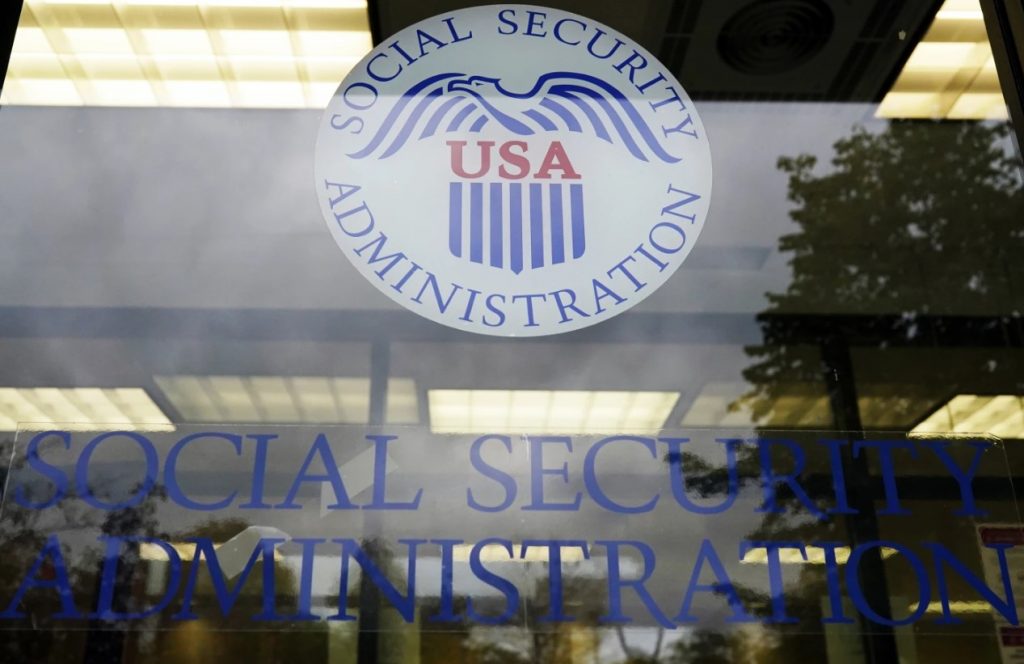Wisconsin Has 18,000 Federal Workers. How Many Will Be Lost?
Workers face buyouts, layoffs. Delivery of services in state may suffer.
Thousands of federal workers in Wisconsin are under pressure to consider buyouts under President Donald Trump’s plans to shrink the federal government, which could affect services offered in the state.
Meanwhile the White House has set a deadline of 11:59 p.m. Monday for federal workers to decide whether to take buyout offers.
As of last March, Wisconsin had more than 18,000 federal employees, and it’s unclear how many may have accepted the offer. They perform a wide range of duties that may include enforcing federal environmental regulations, providing financial aid to small businesses, maintaining medical centers and clinics for veterans, prosecuting criminal cases, providing military aid and disaster relief and much more.
“The public feels emboldened to attack federal workers instead of thank us for our service to this country. We’re being demonized, and that takes a toll.”
Jessica LaPointe, president of the American Federation of Government Employees Council 220
Federal data shows most federal employees in Wisconsin work for the Department of Veterans Affairs, which has nearly 11,000 employees based in the state.
Crystal Knoll, a veterans service officer in Vernon County, said most counties work with the regional Veterans Affairs office in Milwaukee when veterans file claims for benefits. Knoll said a shortage of staff, particularly doctors and nurses, would be a detriment.
“The VA is already kind of strapped for staffing, so it can kind of get hard to get veterans in for appointments,” Knoll said. “Thankfully, we do have community care programs so veterans can use the local facilities that are contracted with the VA, but it still puts a strain on even the general public getting appointments when we’re trying to use both the VA and civilian side of healthcare.”
The state has more than 323,000 veterans. In 2023, the VA spent more than $4.3 billion in Wisconsin for veterans services, including medical care and compensation for service-related disabilities.
The administration’s “Fork in the Road” directive warned employees that most federal agencies will likely be “downsized through restructurings, realignments, and reductions in force.” It’s been promoted by billionaire Elon Musk, who is leading the White House’s Department of Government Efficiency, or DOGE.
In a statement, Democratic Sen. Tammy Baldwin said forcing out VA doctors, nurses and caseworkers would deprive veterans of care.
Republican Sen. Ron Johnson said in a social media post that he had more faith in Musk to investigate waste, fraud and abuse than unelected bureaucrats.
“They’re not accountable to anybody. They don’t provide the American public information through their elected representatives here in Congress, who else could investigate that?” Johnson told Fox Business news. “I applaud Elon Musk. I applaud the Trump administration.”
Knoll, who served with the Wisconsin National Guard, said she hasn’t observed any disruptions in service, but she’s heard conflicting information about whether the VA would be exempt from hiring freezes. The Office of Personnel Management has said a few agencies will see staff increases, and the agency noted it may grant exemptions for provision of veterans, Medicare and Social Security benefits.

A forwarder stacks fresh cut logs on the side of a timber road in the Chequamegon-Nicolet National Forest. Glen Moberg/WPR
Federal union leaders say agencies already face staffing challenges
Jessica LaPointe, president of the American Federation of Government Employees Council 220, represents nearly 27,000 field workers with the Social Security Administration nationwide.
Based in Madison, LaPointe has spent much of the last 16 years processing claims for seniors and people living with disabilities. She said the proposed buyouts and threats of layoffs come as the agency is facing a 50-year low in staffing amid a growing number of beneficiaries.
Most recent data shows 550 federal workers with the Social Security Administration are based in Wisconsin. LaPointe said people living with disabilities have seen wait times grow from two to eight months for approval of their benefits. At the same time, former Social Security Commissioner Martin O’Malley told Congress in September that an estimated 30,000 people died in 2023 while waiting for such claims to be processed.
“We don’t just grapple with the uncertainty of our own job. We grapple with the uncertainty of the public that are relying on these earned benefits to survive,” LaPointe said. “We’re really sort of operating under a fight or flight or freeze environment.”
Federal workers weigh options and whether to return to offices
Most federal workers would also be forced to return to offices. One local union representative for federal workers in Wisconsin, an employee of the U.S. Forest Service, said such mandates done in the name of efficiency are decreasing productivity among employees. The person spoke on condition of anonymity for fear of retaliation.
“I have heard stories of people being furloughed because they’re speaking out against the administration,” the worker said. “As a union representative, I could potentially have a target on my back just for that, and that’s scary.”
The Forest Service is housed under the U.S. Department of Agriculture, which employs more than 1,700 people in Wisconsin. Wisconsin workers with the Forest Service oversee timber sales, compliance with federal environmental laws, recreation in national forests and other duties.
The Chequamegon-Nicolet National Forest bills itself as one of the nation’s top timber-producing forests, and annual harvests directly support around 57,000 jobs in the state’s forest products industry.
The union representative warned timber sales could be hamstrung or shut down amid buyouts or layoffs.
“We only have so many projects cleared and prepped that eventually, if we don’t have the people to even do the review … then we’re not going to be able to manage the national forests in the ways that the public deserves,” the union leader said.
Westby dairy farmer Darin Von Ruden, president of the Wisconsin Farmers Union, noted farmers often work with federal employees at the Farm Service Agency to sign up for crop insurance or access financial assistance when milk prices drop. They also take part in conservation programs that provide payments or cost-share assistance for practices that benefit water quality and control runoff.
He said reduced staffing could hurt Wisconsin farmers.
“It could mean that farmers simply don’t get a check, or the check might come too late to help with making sure that the monthly bills get paid,” Von Ruden said. “Timeliness is everything, and that means that we have to have an accurate or a good amount of folks hired to make sure the process happens.”
In 2023, falling milk prices led to record payments under a program to help dairy farmers, including $276.8 millon to around 4,300 farms in Wisconsin.
Federal workers like LaPointe say they’ve devoted years of their life to serving the public.
“The public feels emboldened to attack federal workers instead of thank us for our service to this country,” she said. “We’re being demonized, and that takes a toll.”
Wisconsin has 18K federal workers. Buyouts or layoffs could affect services. was originally published by Wisconsin Public Radio.
If you think stories like this are important, become a member of Urban Milwaukee and help support real, independent journalism. Plus you get some cool added benefits.























